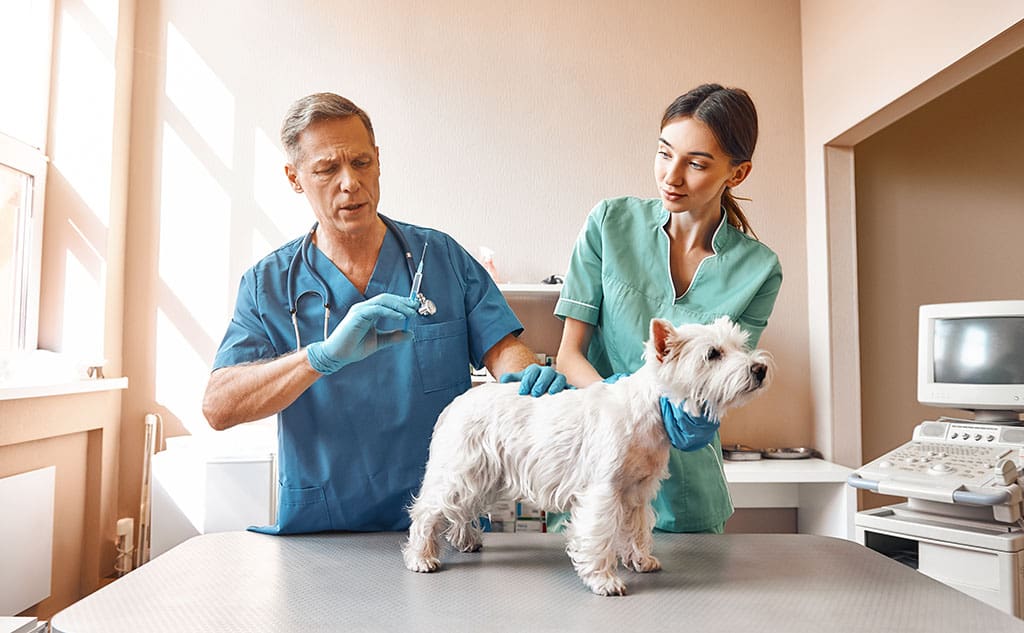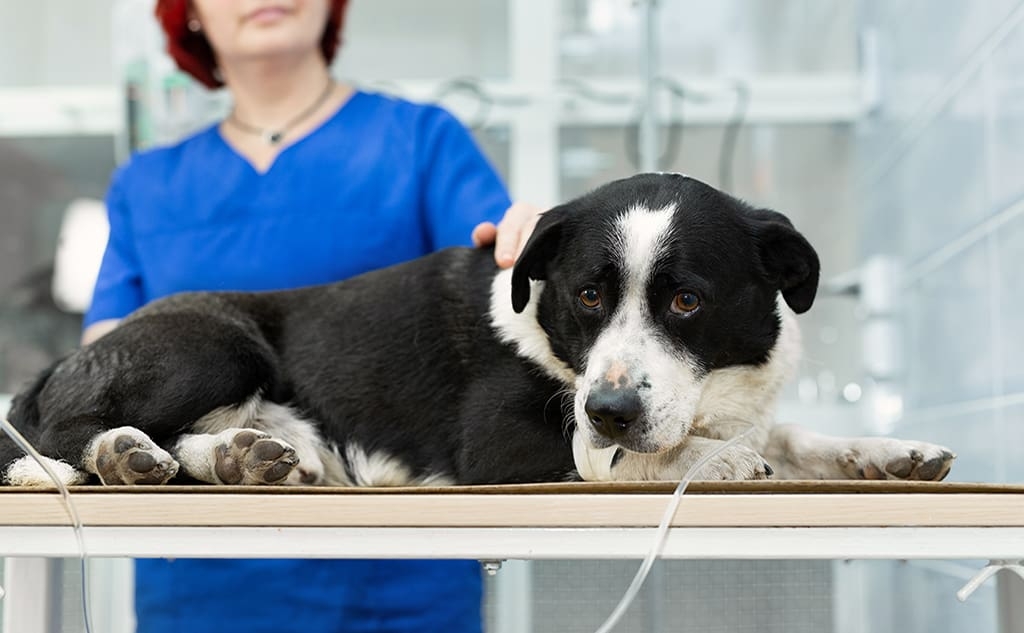

As a dog owner, it’s important to ensure the health and well-being of your furry friend. Vaccinations are a critical part of this, as they protect your dog from a variety of serious and potentially life-threatening illnesses. However, deciding when to vaccinate your dog can be a bit overwhelming, as there are many different vaccines available and different schedules to follow. In this article, we’ll provide an overview of the different types of vaccines, as well as guidance on when to vaccinate your dog.
Core Vaccines:
Core vaccines are those that are recommended for all dogs, regardless of their lifestyle or environment. These vaccines protect against the most common and serious canine diseases. The core vaccines include:
1.Rabies vaccine
2. Distemper vaccine
3. Adenovirus vaccine
4. Parvovirus vaccine
Rabies vaccine:
The rabies vaccine is one of the most important vaccines for dogs, and it’s required by law in many states. Rabies is a viral disease that can be spread through the bite of an infected animal, including wild animals such as bats, raccoons, and foxes. If left untreated, rabies can be fatal to both dogs and humans. Vaccinating your dog against rabies is essential for their health and safety, as well as the safety of those around them.
Distemper vaccine:
The distemper vaccine is another essential vaccine for dogs, as it protects against a highly contagious and potentially deadly virus. Canine distemper is a virus that can cause respiratory, gastrointestinal, and nervous system symptoms in dogs, and it can also lead to death in severe cases. The virus is spread through contact with bodily fluids of infected dogs or wild animals. Vaccinating your dog against distemper is crucial for their health and well-being, as it can help prevent the spread of the virus and protect them from potential infection.
Adenovirus vaccine:
The adenovirus vaccine, also known as the canine hepatitis vaccine, is another important vaccine for dogs. Adenovirus is a virus that can cause respiratory and liver disease in dogs, and it can be spread through contact with bodily fluids of infected dogs. Vaccinating your dog against adenovirus is important for their overall health and well-being, as it can help prevent the spread of the virus and protect them from potential infection.
Parvovirus vaccine:
The parvovirus vaccine is essential for protecting dogs from a highly contagious and potentially fatal virus. Canine parvovirus is a virus that can cause severe gastrointestinal symptoms in dogs, including vomiting, diarrhea, and dehydration. The virus is spread through contact with infected dogs or contaminated environments. Vaccinating your dog against parvovirus is crucial for their health and well-being, as it can help prevent the spread of the virus and protect them from potential infection.
These four vaccines (rabies, distemper, adenovirus, and parvovirus) are considered core vaccines for all dogs, regardless of their lifestyle or environment. These vaccines are essential for protecting dogs from serious and potentially life-threatening illnesses, and they are typically included in the standard puppy vaccine schedule. It’s important to work closely with your veterinarian to determine the appropriate vaccine schedule for your dog based on their individual needs and lifestyle.

Non-core Vaccines:
Non-core vaccines are those that are recommended based on a dog’s individual lifestyle and risk factors. These vaccines are not considered essential for all dogs, but may be recommended based on factors such as geographic location, exposure to other animals, or travel plans. Some examples of non-core vaccines include:
1. Bordetella vaccine
2. Leptospirosis vaccine
3. Lyme disease vaccine
4. Canine influenza vaccine
Bordetella vaccine:
The Bordetella vaccine, also known as the kennel cough vaccine, is a non-core vaccine that is important for dogs who are regularly exposed to other dogs, such as those who visit boarding facilities or dog parks. Bordetella bronchiseptica is a bacterium that causes kennel cough, a respiratory infection that can be easily spread through close contact with infected dogs. Vaccinating your dog against Bordetella can help reduce the risk of kennel cough and protect them from potential infection. The vaccine can be given as an injection or intranasal spray, and it’s typically recommended for puppies and adult dogs who are at risk of exposure.
Leptospirosis vaccine:
The Leptospirosis vaccine is a non-core vaccine that is recommended for dogs who are at risk of exposure to the bacteria. Leptospirosis is a bacterial infection that can be spread through the urine of infected animals, including rats and wildlife. The bacteria can cause severe kidney and liver disease in dogs, and it can also be transmitted to humans. Vaccinating your dog against Leptospirosis can help protect them from potential infection and reduce the risk of transmission to other animals and humans.
Lyme disease vaccine:
The Lyme disease vaccine is a non-core vaccine that is recommended for dogs who are at risk of exposure to ticks, which can transmit the bacteria that causes Lyme disease. Lyme disease is a bacterial infection that can cause fever, joint pain, and other symptoms in dogs and humans. Vaccinating your dog against Lyme disease can help reduce the risk of infection and protect them from potential complications.
Canine influenza vaccine:
The Canine influenza vaccine is a non-core vaccine that is recommended for dogs who are at risk of exposure to other dogs, especially in communal settings such as boarding facilities or dog parks. Canine influenza is a highly contagious respiratory infection that can cause fever, coughing, and other symptoms in dogs. Vaccinating your dog against canine influenza can help reduce the risk of infection and protect them from potential complications.
Puppy Vaccine Schedule:
The recommended vaccine schedule for puppies includes a series of shots that are given in multiple visits to the veterinarian. Typically, the first set of vaccines are given at 6-8 weeks of age, with booster shots given every 3-4 weeks until the puppy is around 16 weeks old. After that, boosters are usually given annually or every three years, depending on the specific vaccine. Your veterinarian can provide you with a specific schedule based on your puppy’s individual needs.
Vaccine Schedules for Adult Rescue Dogs:
For adult rescue dogs, it’s important to determine their vaccination history before starting a new schedule. Your veterinarian may recommend blood tests to check for previous vaccinations and determine which vaccines are necessary. Once a schedule is determined, it’s important to follow it closely to ensure your dog is protected from serious illnesses.
In conclusion, being a responsible pet owner involves vaccinating your dog. By adhering to the recommended vaccine schedules, you can safeguard your furry companion from severe and possibly life-threatening illnesses. It’s vital to consult with your veterinarian to identify which vaccines are suitable for your dog based on their lifestyle and unique requirements. By collaborating with your vet, you can take steps to ensure your furry friend enjoys a healthy, long life.


